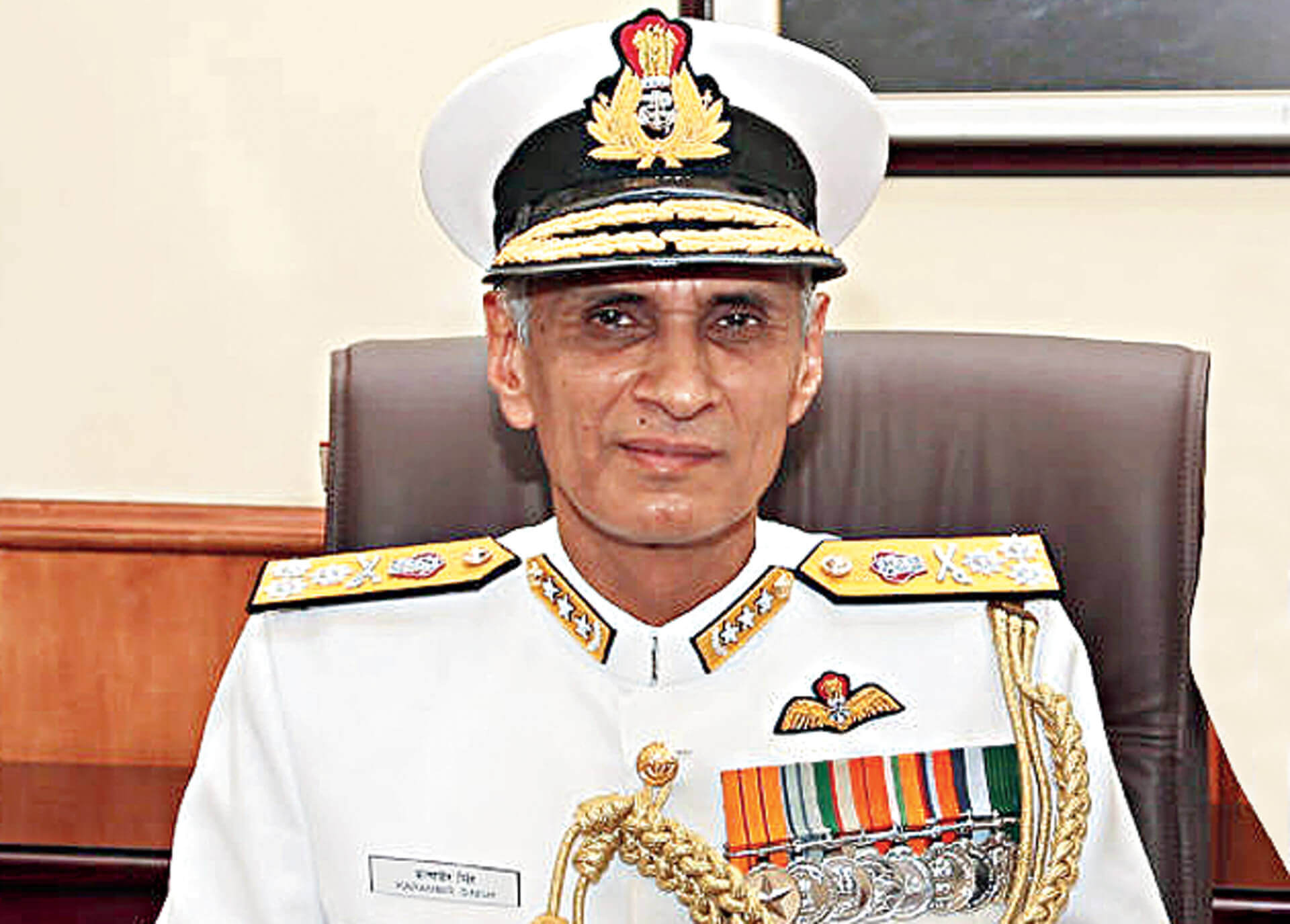Former Chief of the Naval Staff of India Karambir Singh said on Tuesday that if the Taiwan Strait conflict breaks out, it will bear much more serious global consequences than the Ukraine War.
Singh, who is now the chairman of the National Maritime Foundation and served as the Chief of the Naval Staff during 2019-2021, made the remarks during a panel on “The Situation across the Taiwan Strait and the Global Security Order” at the Ketagalan Forum, Indo-Pacific Security Dialogue, in Taipei, on Tuesday.
The former naval chief shared his views on three areas: the present global security situation, why the tense situation in Taiwan Straits is so critical to the globe, the region, and India, and his recommended way ahead.
Present Situation
Singh said that the world today is “caught in a situation,” which seems “self-defeating and reminiscent of the Cold War era — perhaps even more worrisome.”
“We have degrees of coexistence, competition, contestation, confrontation, and culminating in conflict. Unfortunately, today we seem to be at the confrontation end of the scale, very close to the conflict,” Singh stated.
“You can see a fracturing world jostling for influence and leveraging for influence and geostrategic space. This is being witnessed globally,” he said, adding that “what has happened in the last two years threatens to split the globe into two: a coalition of China, Russia, Iran, and North Korea seems to be forming on the antipathy to the policies of the West and the US.”
Effect on India
Singh went on to say that “Great power competition, as is natural, will spill over, has spilled over to the waters of the Indo-Pacific, and these affect security, especially maritime security.”
India, Singh said, heavily depends on the seas, as 95% of its trade by volume is through the seas. “If India aspires to grow to a 5 trillion economy by 2025, or [attain] developed nation status by 2047, it has to reach out to the world through the seas,” he stressed.
However, he added that the Ukraine conflict, “which has spilt over to the seas, with adverse effect on food, fertilizer and fuel, and the potential for conflict in the Taiwan Straits hurts this aspiration in India.”
Furthermore, he said that “Shipping disruption will have consequential impact on supply chains on which key segments of Indian industry are heavily dependent. Disruption of semiconductor supplies, we all know, could potentially paralyze industry and lead to significant unemployment in our country.”
Vested Interests of Large Powers
The former navy chief underscored that in the issue of the Taiwan Strait, there is vested “prestige and interest of two large powers” – the US and China — “directly at stake.”
He noted that “Geopolitically, what happens in Taiwan Straits will have a major effect on the balance of power, not only in the west Pacific, but through the globe.”
“In the event the conflict breaks out in the Taiwan Straits, it will certainly not be contained within the Straits, and we’ll have serious geopolitical and economic consequences globally — and, to my mind, much more serious than the effects of the Ukraine conflict,” he predicted.
Recommendations
Singh advised that “nations need to exist and compete in this reality without getting sucked into this ongoing negative spiral of great power contestation, the Cold War mentality, that sometimes drowns out rationality.”
“We all need to work together to prevent the situation...in the Taiwan Straits from turning into a crisis, from a crisis into a conflict.” To this end, he suggested three propositions:
- Prevent destabilization of the region;
- Build power ballast amongst the middle powers and the Global South, as “poorer, developing countries that bear the brunt of the hardships consequent to a conflict.”
- Preserve the balance of the power on the side of the free liberal world.

